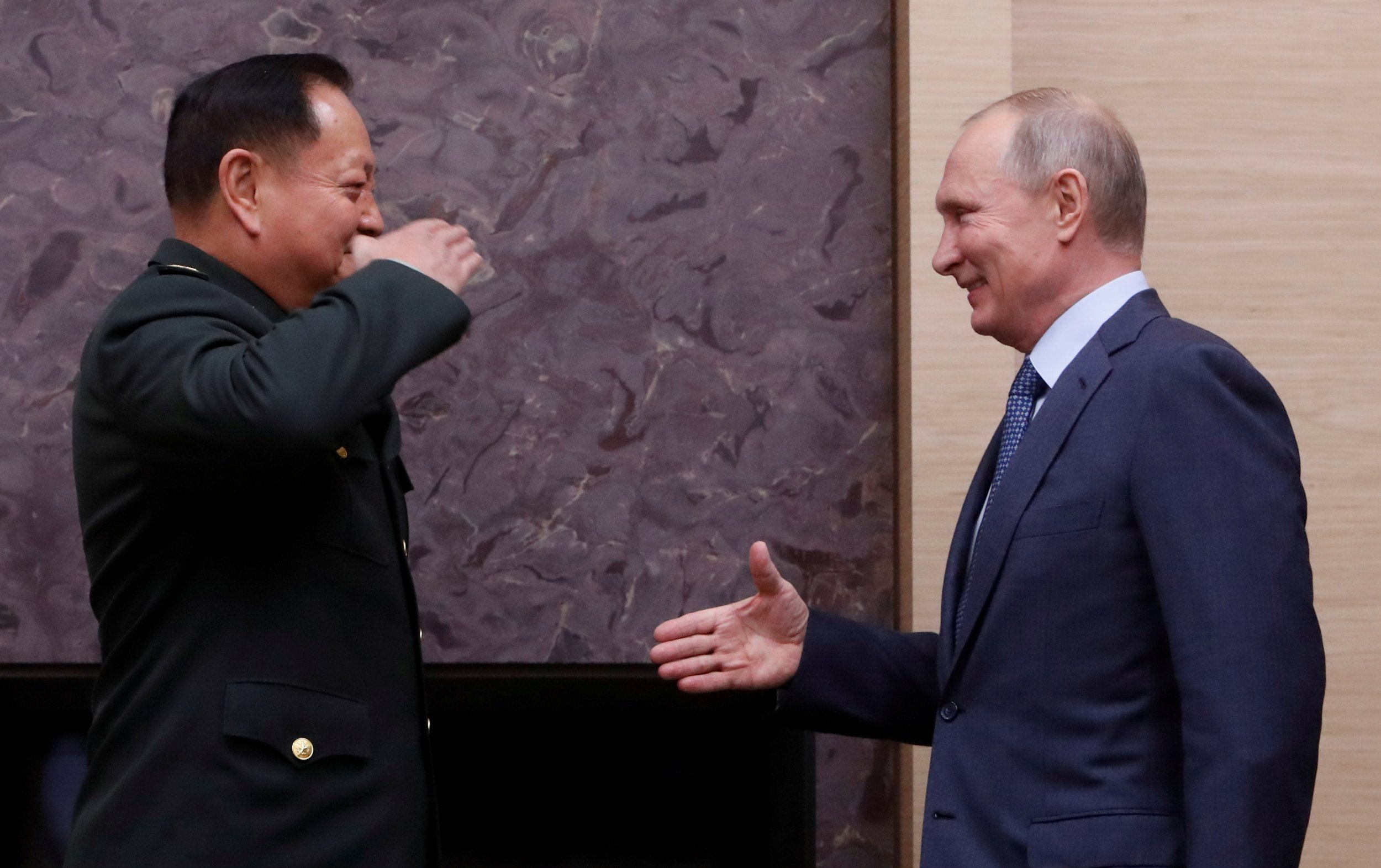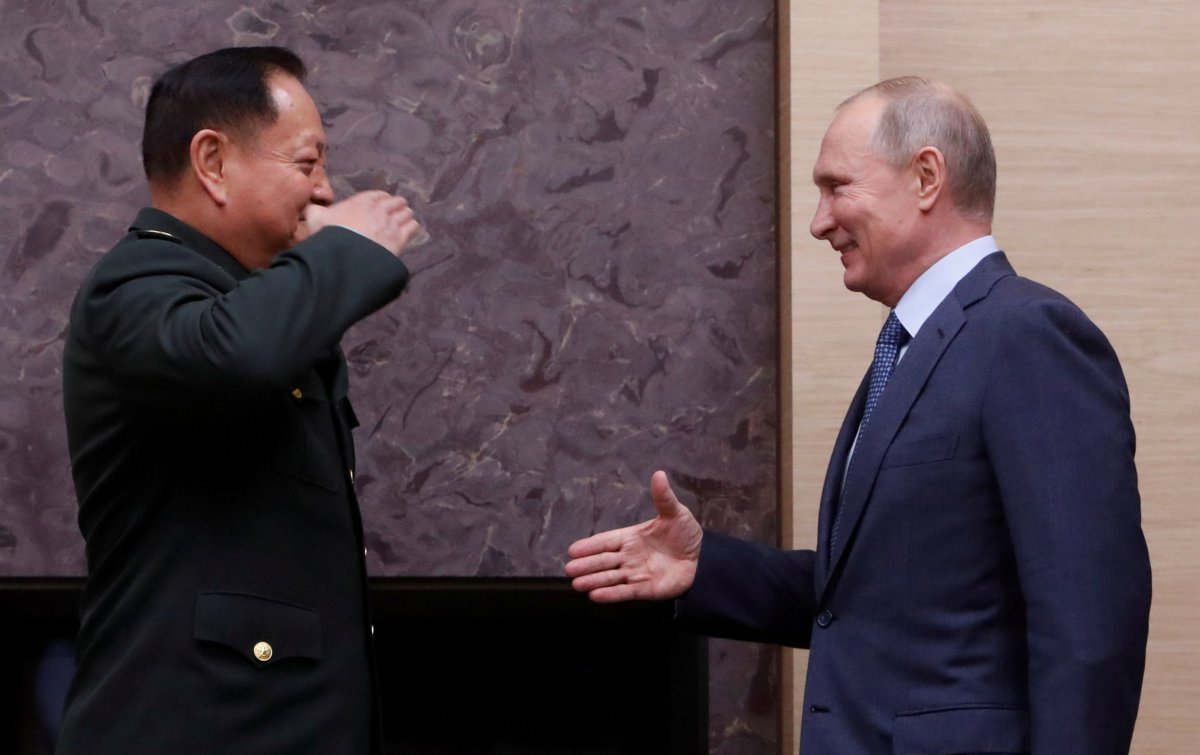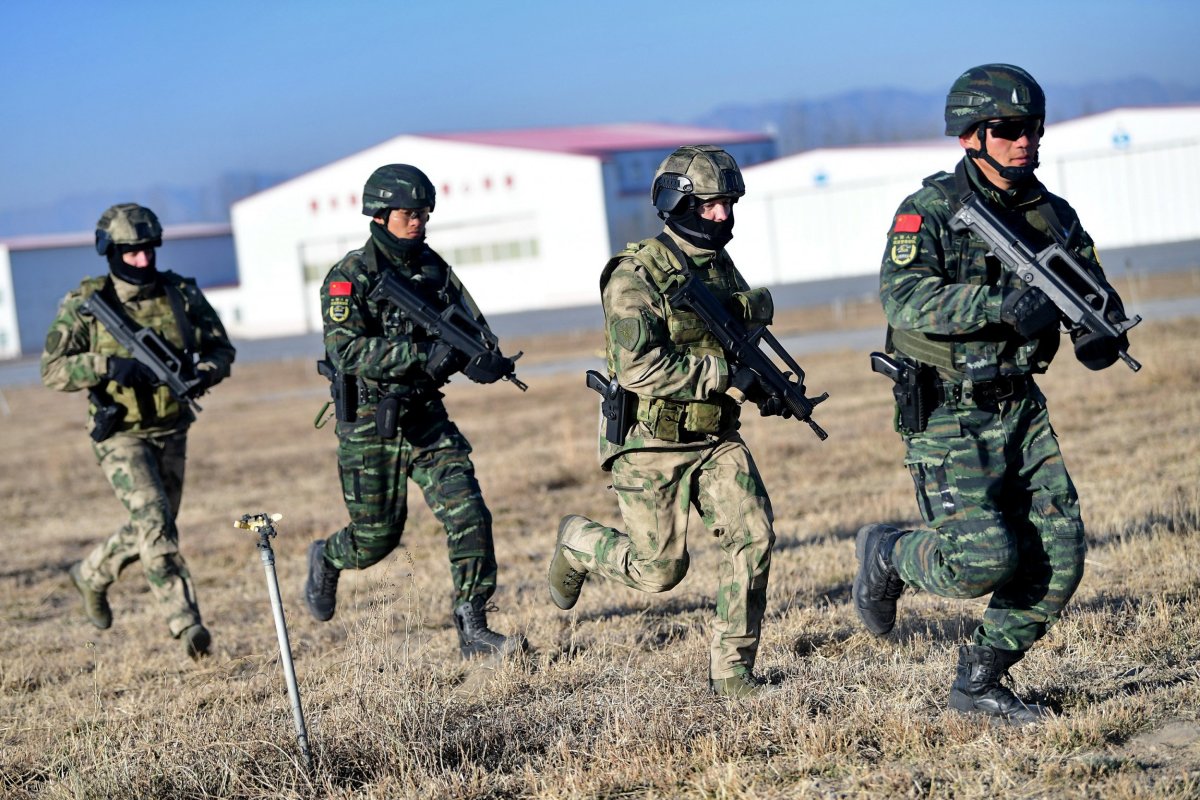
China's envoy to Russia has praised the increasingly powerful relationship between the two countries as both the strongest and most important ties between two major states. Beijing's man in Moscow also took the opportunity to offer a veiled slight at Washington.
Chinese Ambassador to Russia Li Hui spoke Wednesday at a government news conference organized in response to the results of the 19th Chinese Communist Party Congress in October. Russia and China, the two leading diplomatic and military rivals of the U.S., have pursued closer relations in past years while embarking on initiatives to modernize their forces and assume a more assertive role in international politics.
Related: U.S. and Western Europe could lose badly in a war against Russia without China's help
"The Chinese-Russian relations of comprehensive strategic cooperation and partnership are the most important bilateral relations in the world and, moreover, the best relations between big countries," Li told the state-run Tass Russian news agency, which hosted the gathering.
"One can say that they are a classic example of the healthiest and most mature interstate relations and an important force to protect peace and stability throughout the world," Li added.

One of the key reasons the diplomat cited as being responsible for Russia and China's success was that they "abandon the thinking of the Cold War" and a "zero-sum game" policy. Both countries have frequently criticized the U.S. for viewing the world in black-and-white, portraying Russia and China as enemies rather than partners in global affairs.
Moscow's post-Soviet relationship with Washington has been tumultuous but was thought to have been salvaged with the election of President Donald Trump, who promised a reset after the administration of his predecessor, former President Barack Obama, witnessed heightened tensions and historic military mobilizations between U.S.-led Western military alliance NATO and Russia across Europe. Ongoing investigations into Trump's alleged conspiracy to win the election with the help of the Kremlin and differing views between the Republican leader and Russian President Vladimir Putin, however, have damaged the chance of a future U.S.-Russia alliance.
Russia has denied any interference in the 2016 U.S. presidential race and has portrayed efforts of U.S. authorities to produce evidence of such a plot as being reminiscent of the anti-Communist wave of the 1940s and 1950s.
Unlike Russia, China was an early and frequent target of Trump's and his allies' both before and after the billionaire real estate tycoon took office earlier this year. The Trump campaign accused China of currency manipulation and stealing U.S. jobs. As he prepared to assume the role of secretary of state, Rex Tillerson suggested the U.S. should potentially use military force to deny Beijing its vast territorial claims in the disputed seas of the Western Pacific.
As Chinese President Xi Jinping expanded his nation's sphere of influence, his country has accused the U.S. of portraying this rise as a malicious one. Trump has tried to boost cooperation between the two, but mostly in regard to the nuclear crisis between the U.S. and North Korea, during which China has appeared most eager to work with Russia to reach a political framework.

China and Russia's joint simulated anti-missile drills, geared at deflecting potential U.S. or North Korean missiles, on Monday were also the latest evidence of the burgeoning military cooperation between the two powers. The countries have been deeply suspicious of the U.S. presence in the Asia-Pacific, and although both Beijing and Moscow share Washington's opposition to a nuclear North Korea, they have urged Trump to pursue direct talks and avoid provocative shows of force in the tense region.
China and Russia also have joined forces against the West in other parts of the world, including in Syria, where they both backed the government of Syrian President Bashar al-Assad against jihadis and rebels who received international support. Over the summer, Russia and China also launched their first joint drills in the Baltic Sea, near one of the tensest flashpoints between NATO and Russian forces in Europe.
As China and Russia empower their partnership as well as their respective militaries, the Rand Corporation noted in a report earlier this week that despite superior technology and defense spending, "U.S. forces could, under plausible assumptions, lose the next war they are called upon to fight."
Uncommon Knowledge
Newsweek is committed to challenging conventional wisdom and finding connections in the search for common ground.
Newsweek is committed to challenging conventional wisdom and finding connections in the search for common ground.
About the writer
Based in his hometown of Staten Island, New York City, Tom O'Connor is an award-winning Senior Writer of Foreign Policy ... Read more
To read how Newsweek uses AI as a newsroom tool, Click here.








